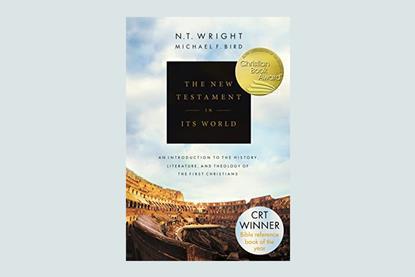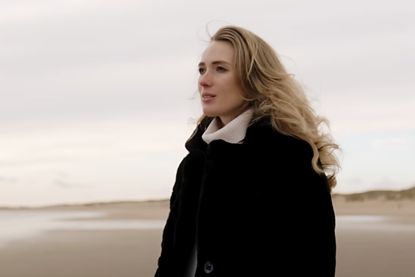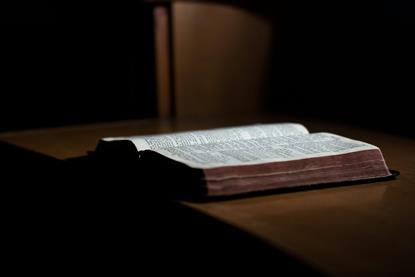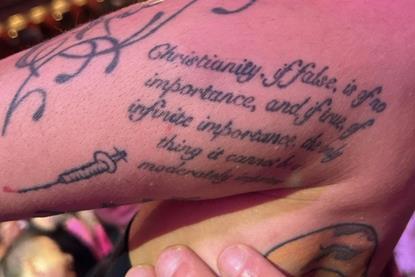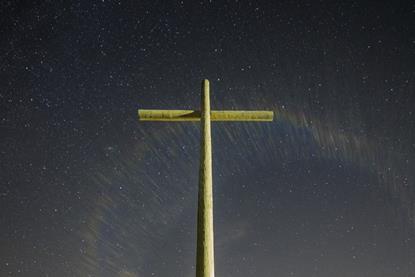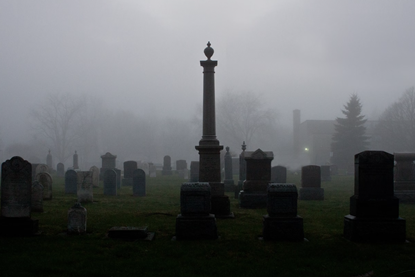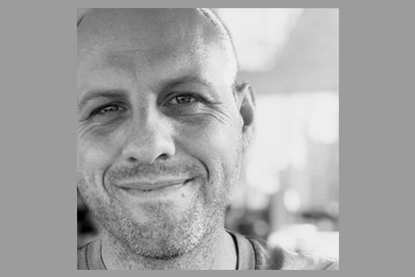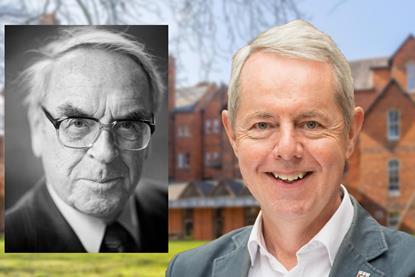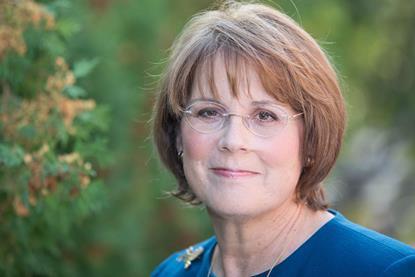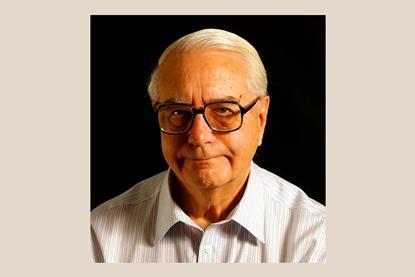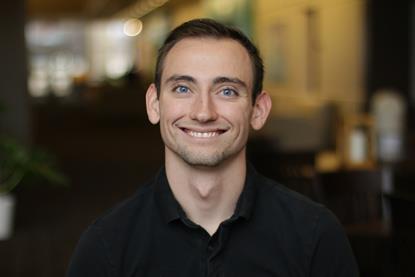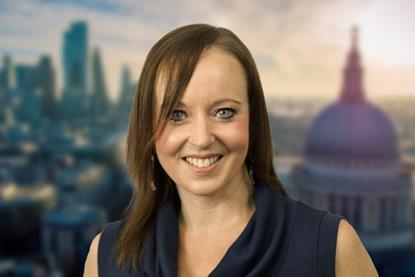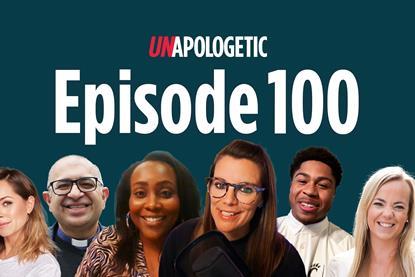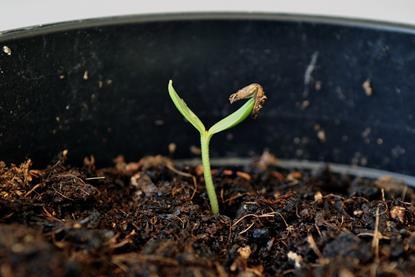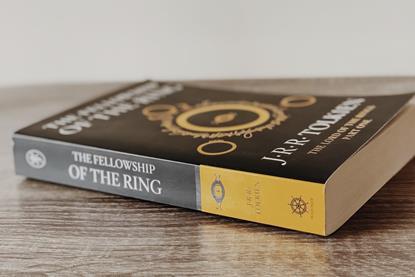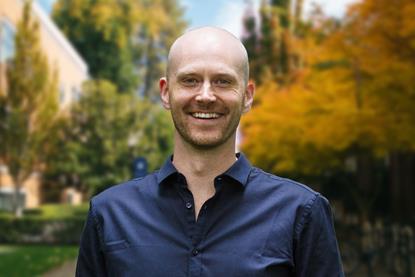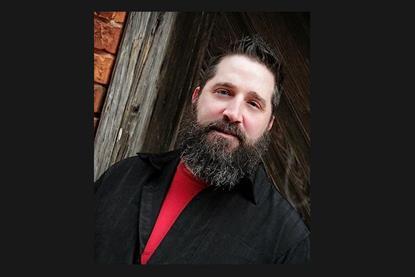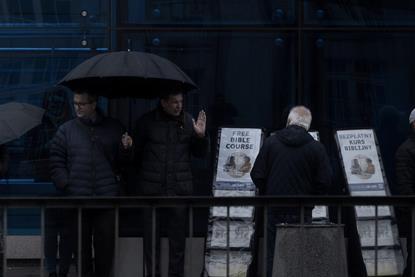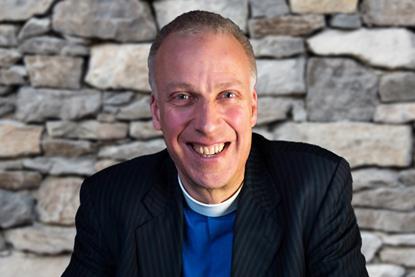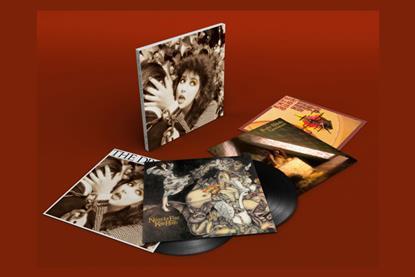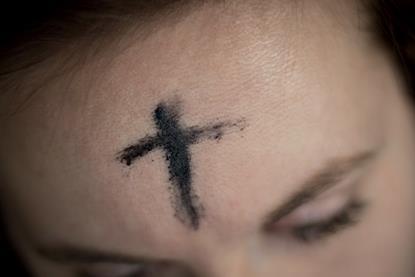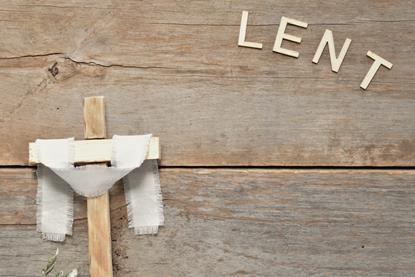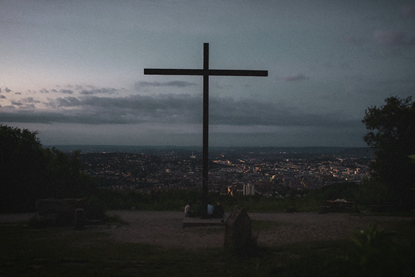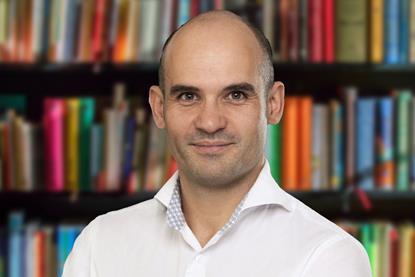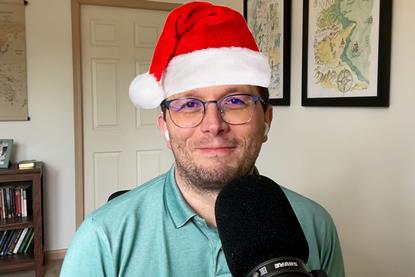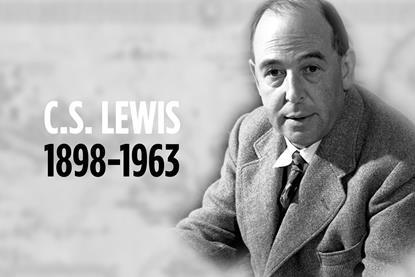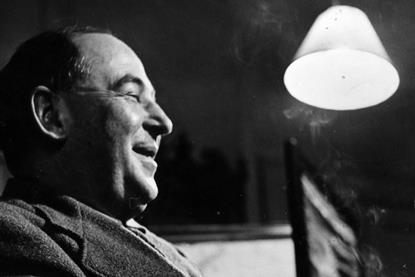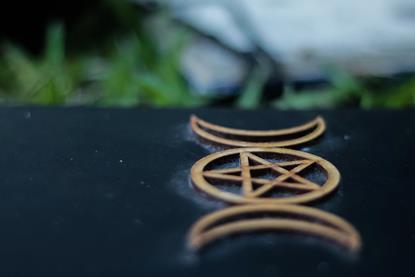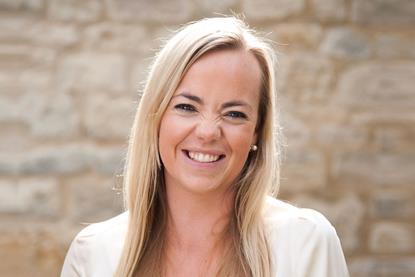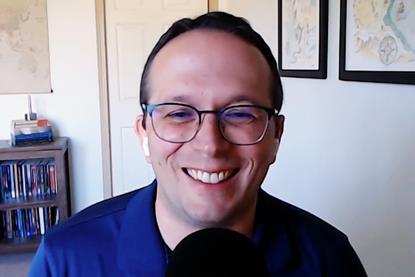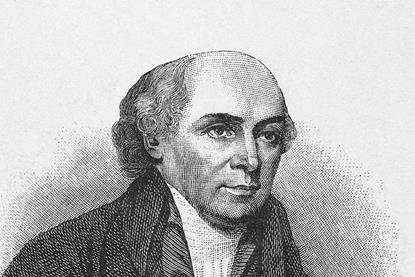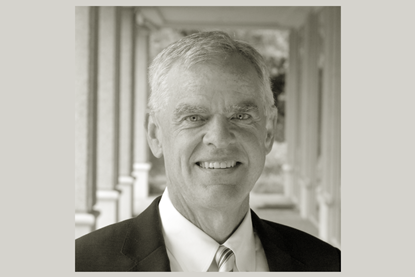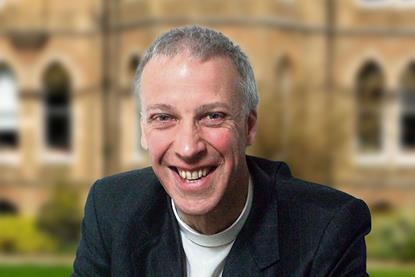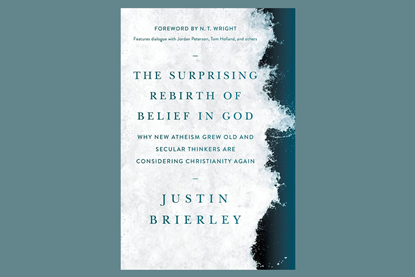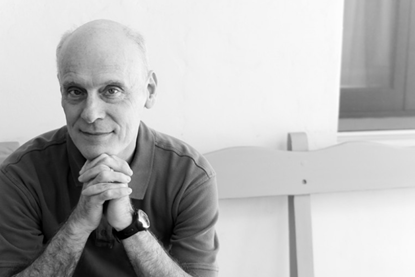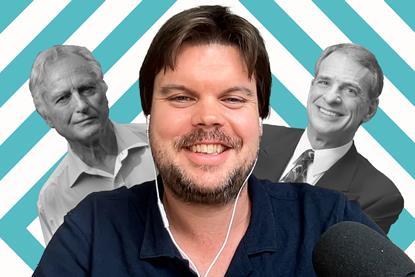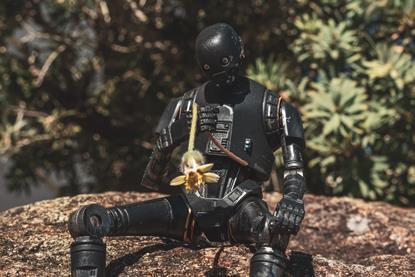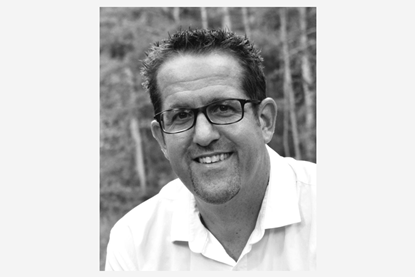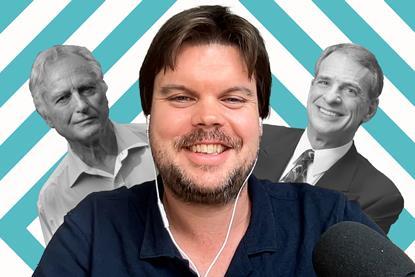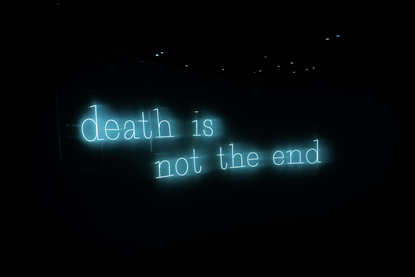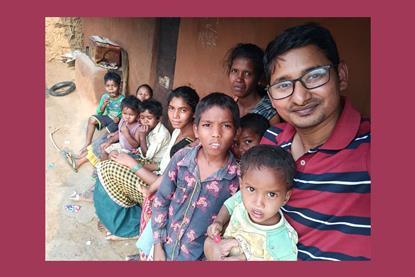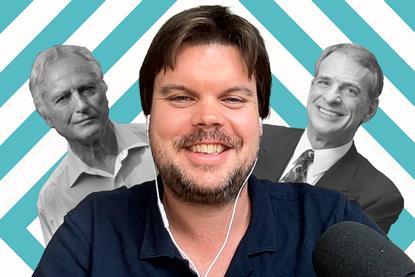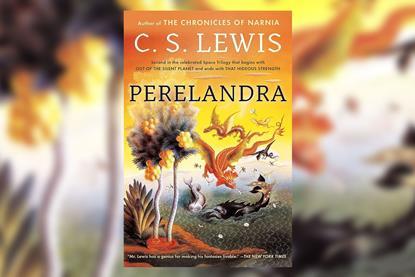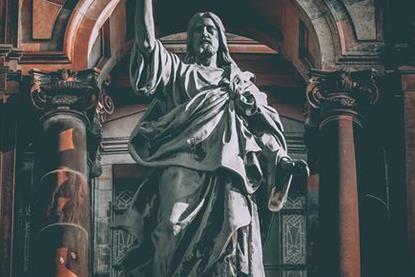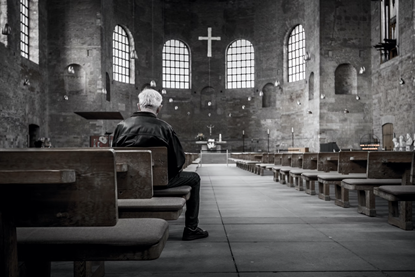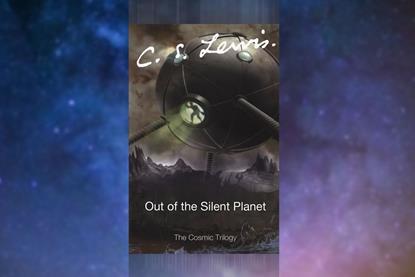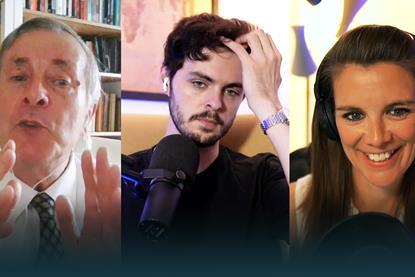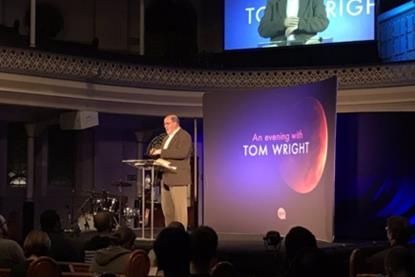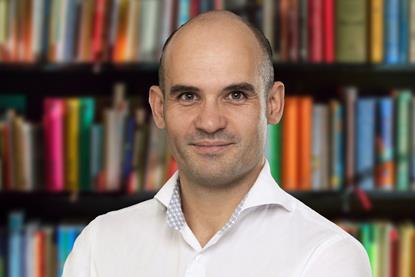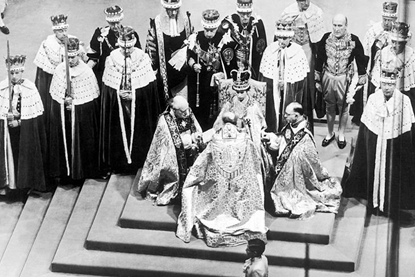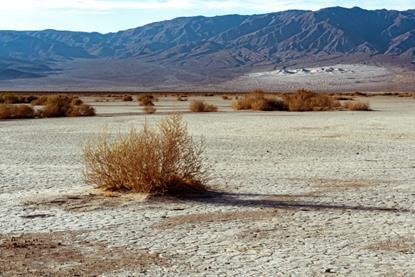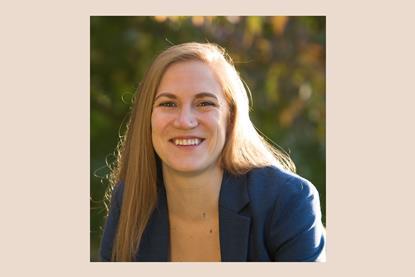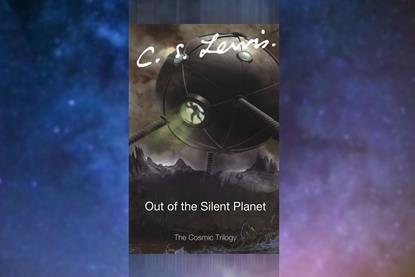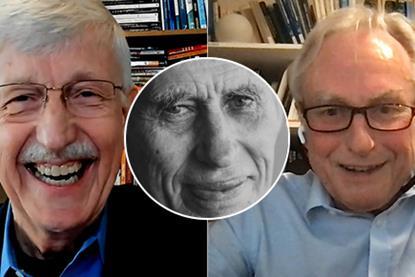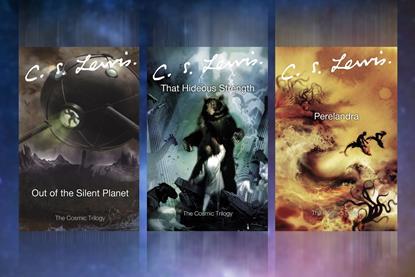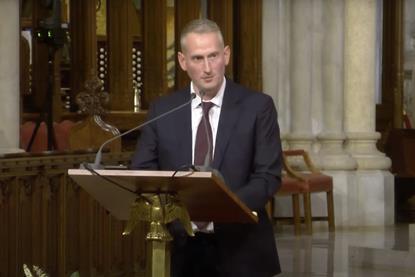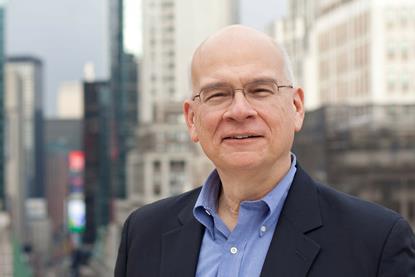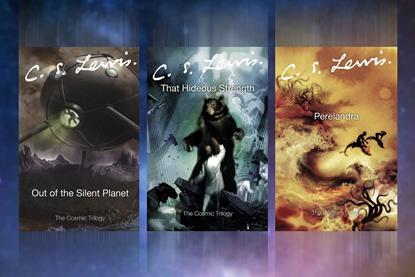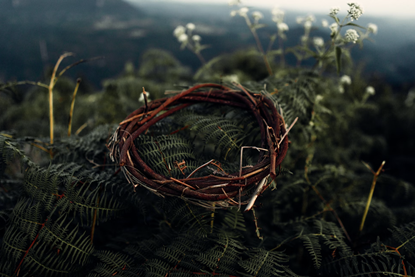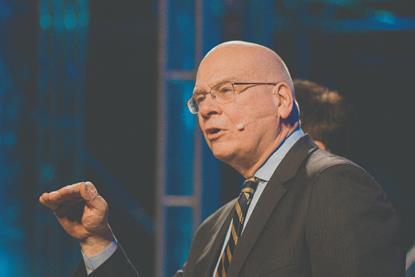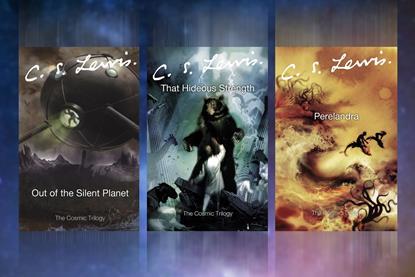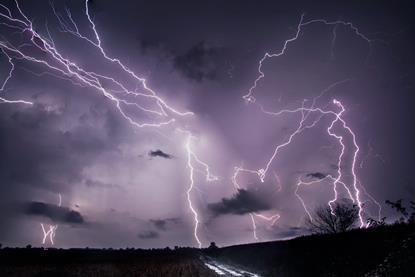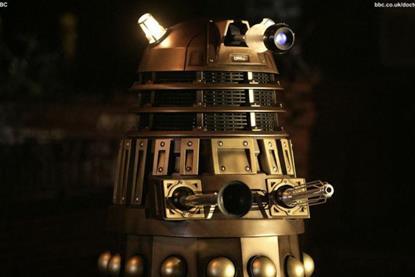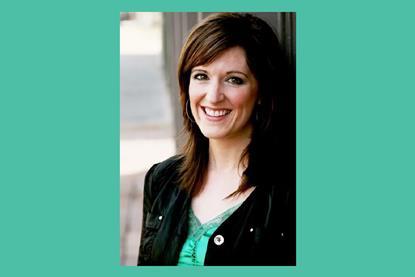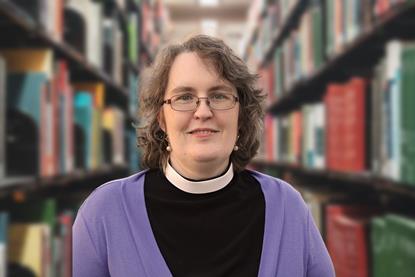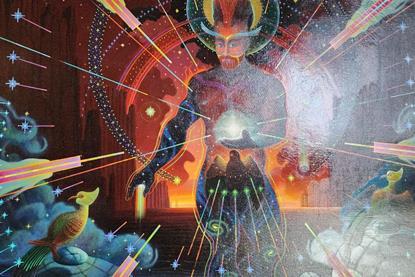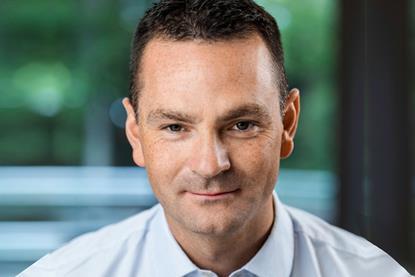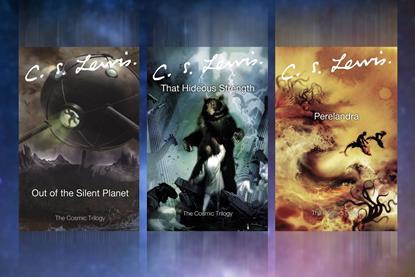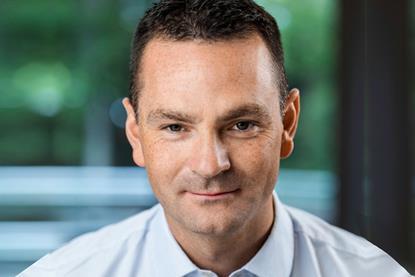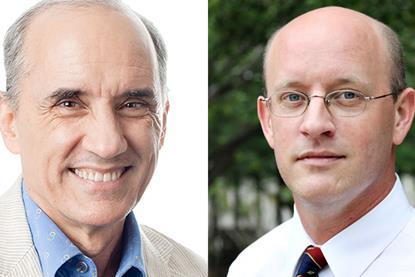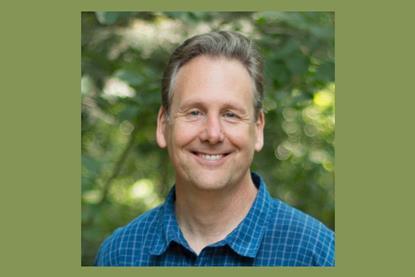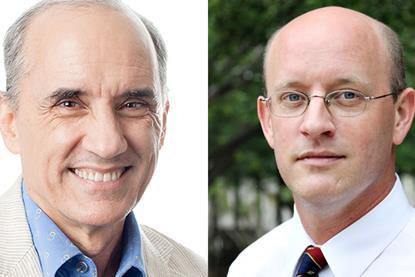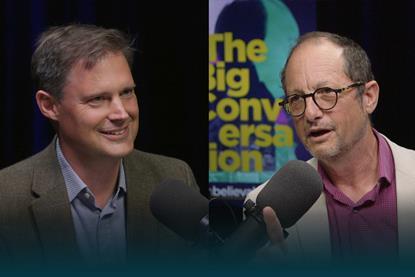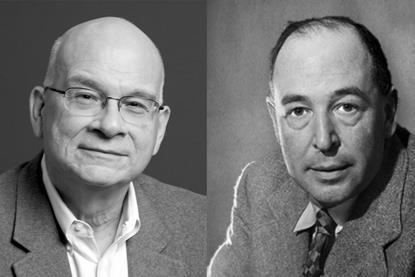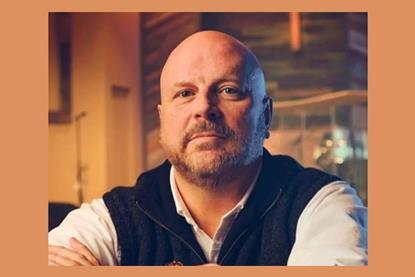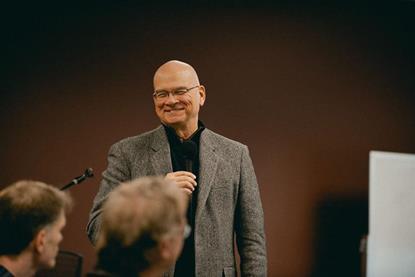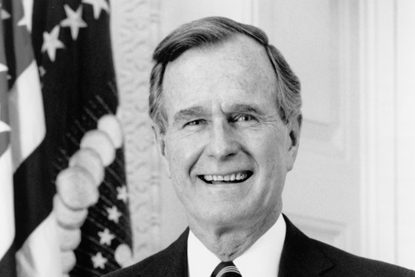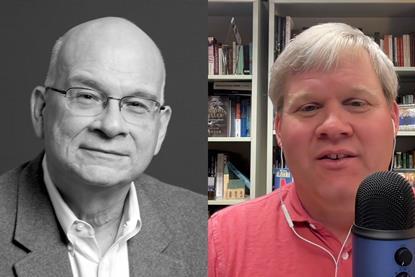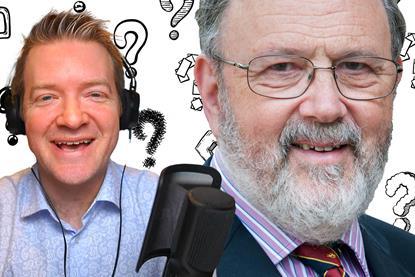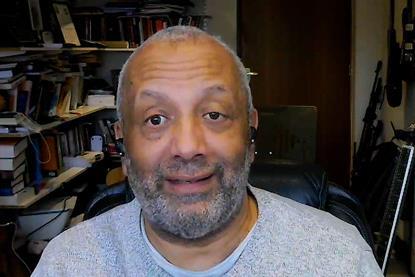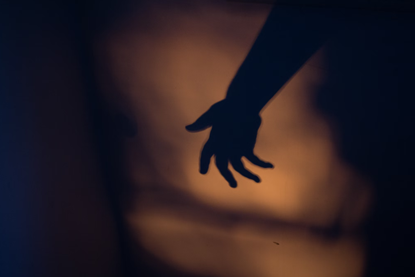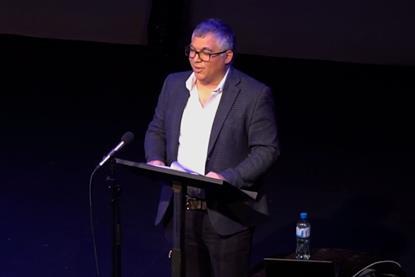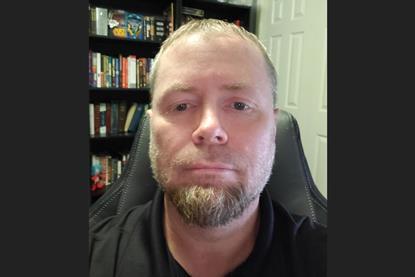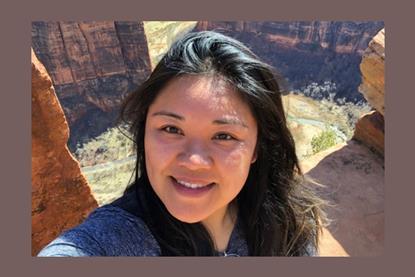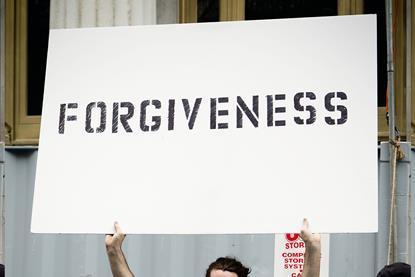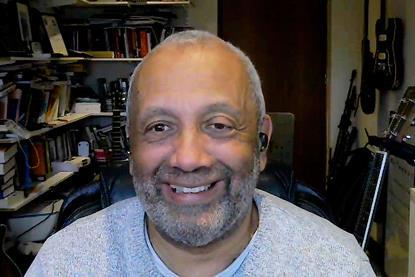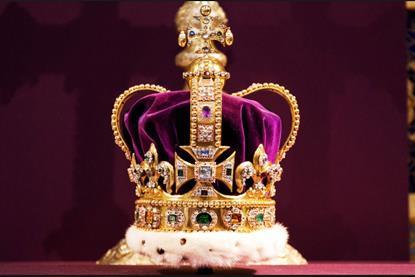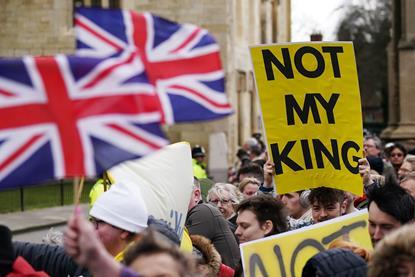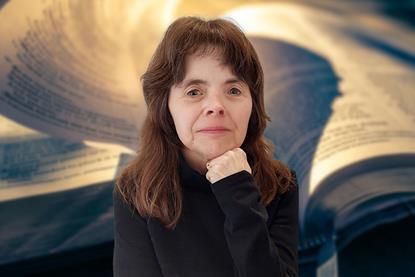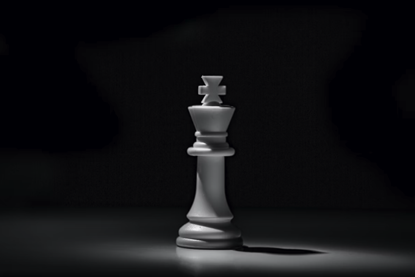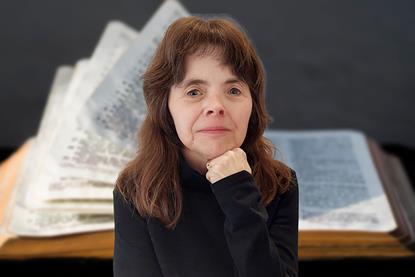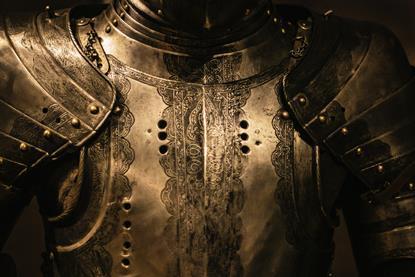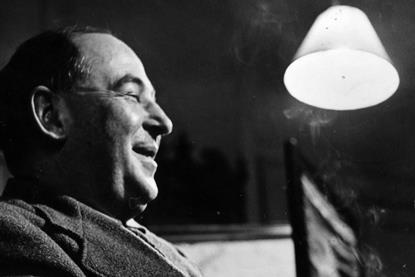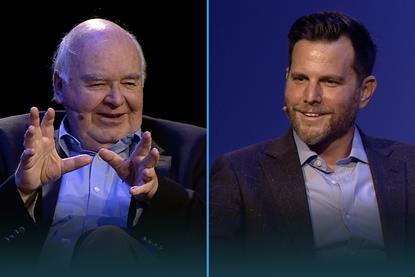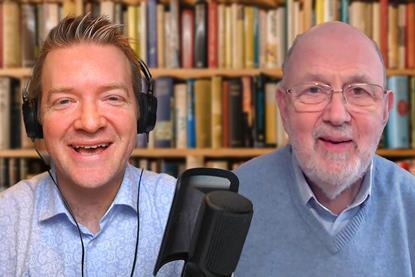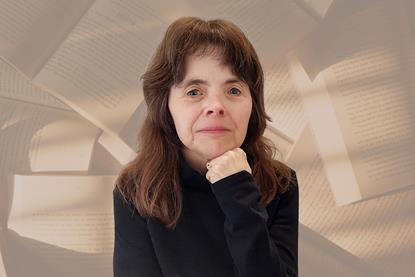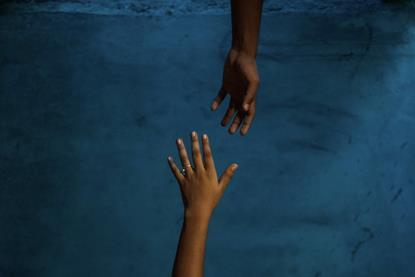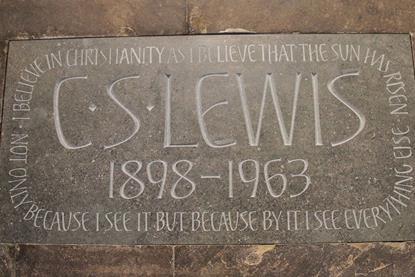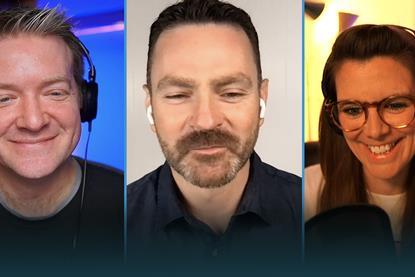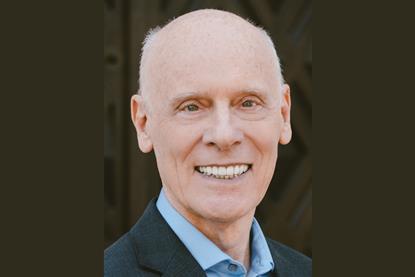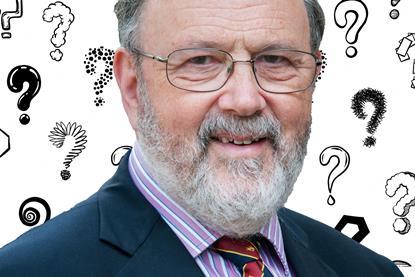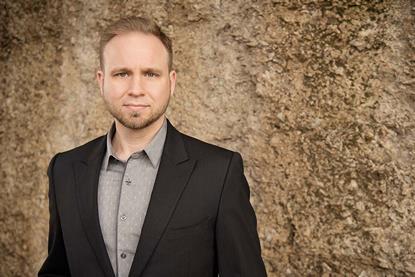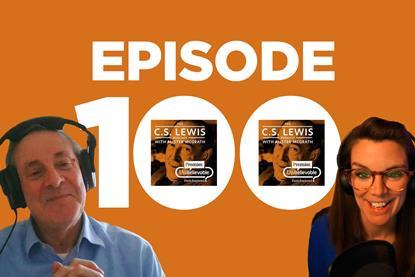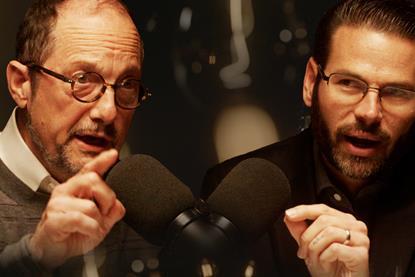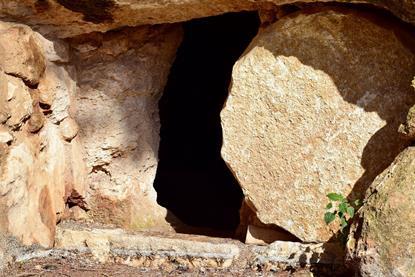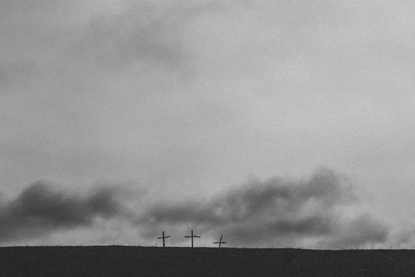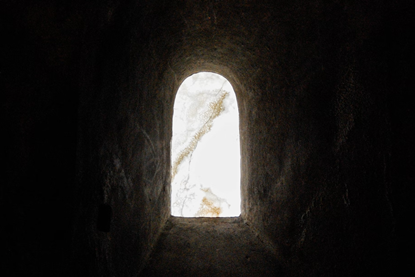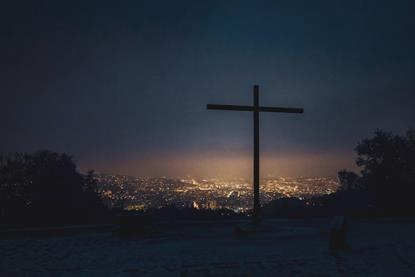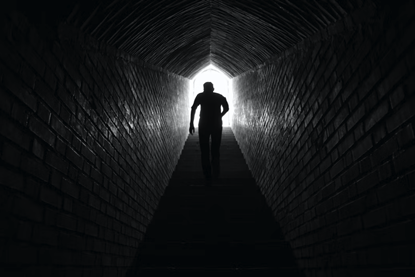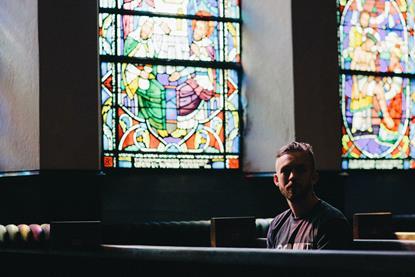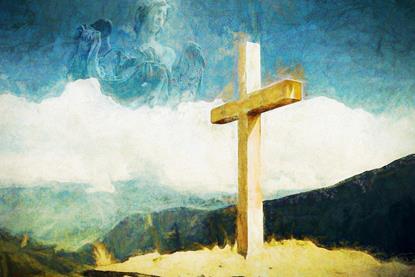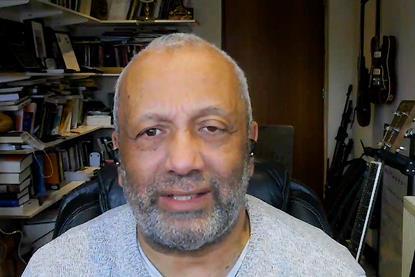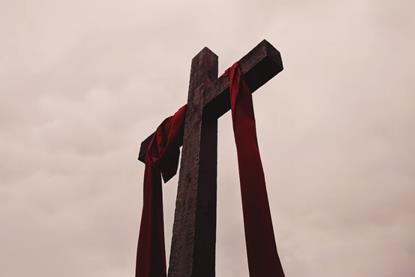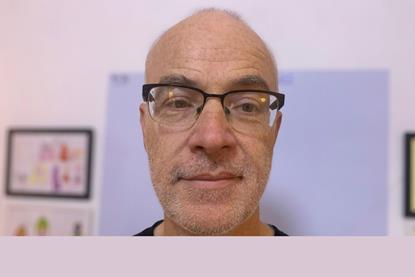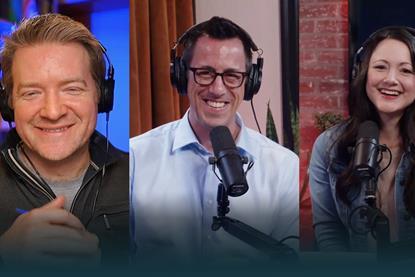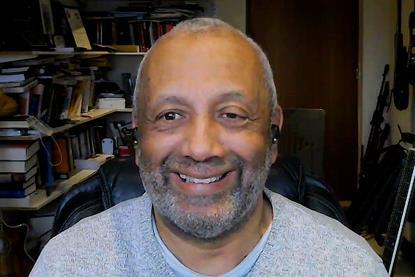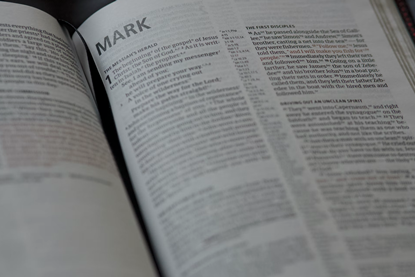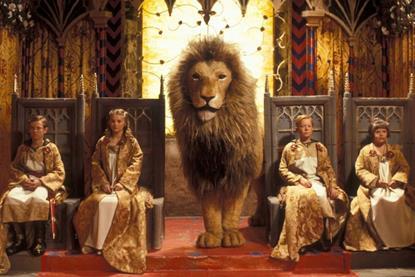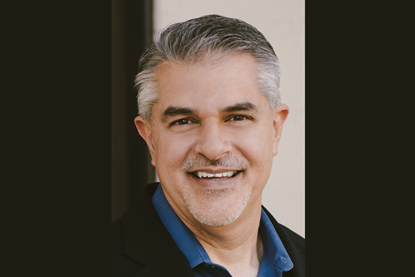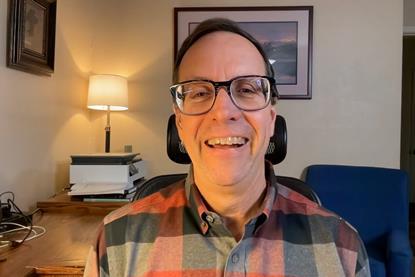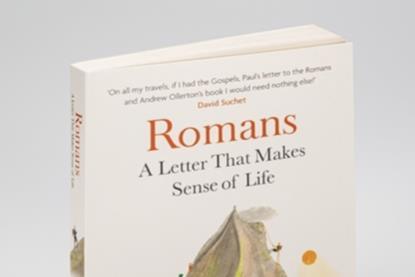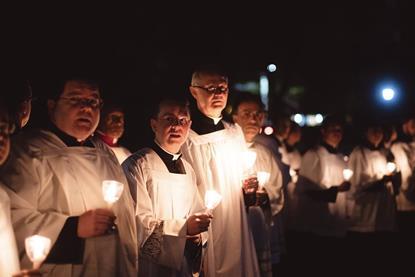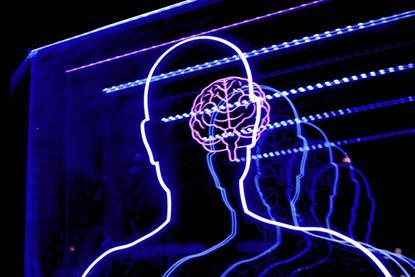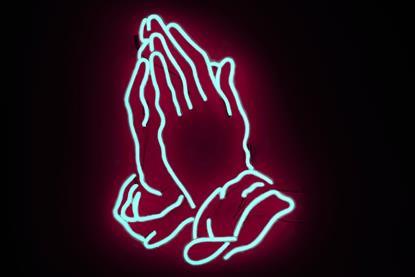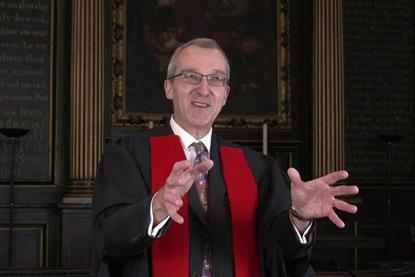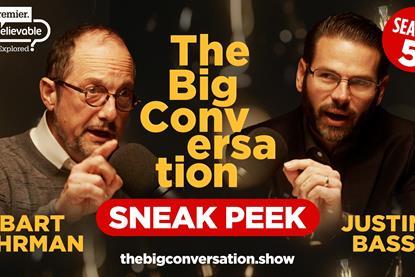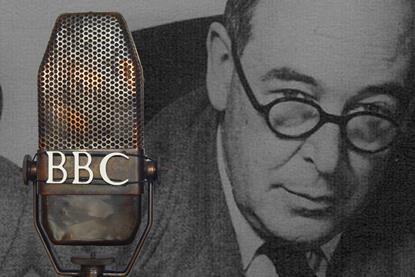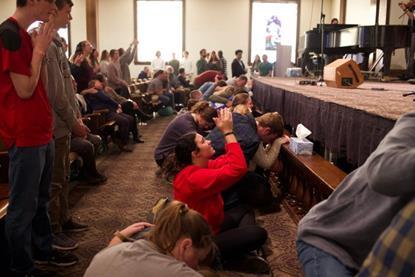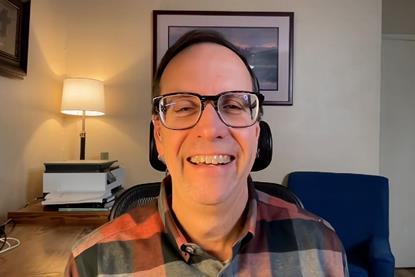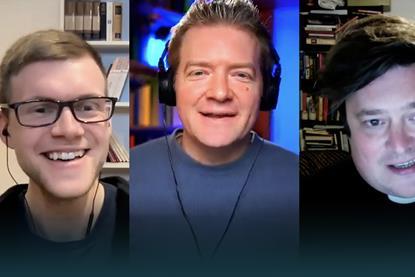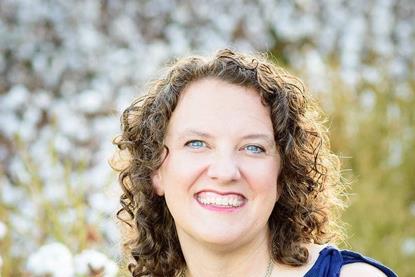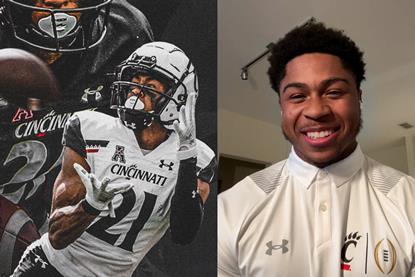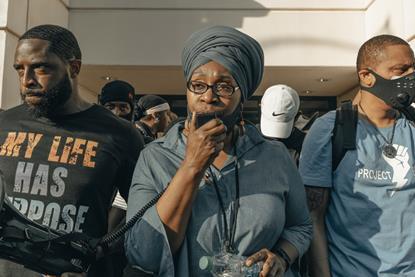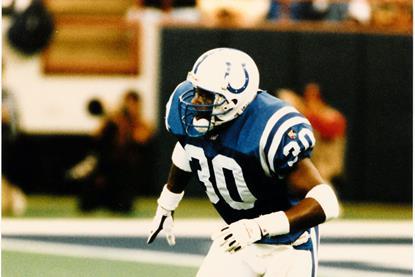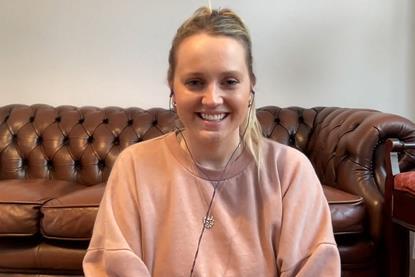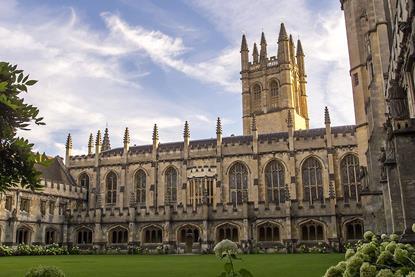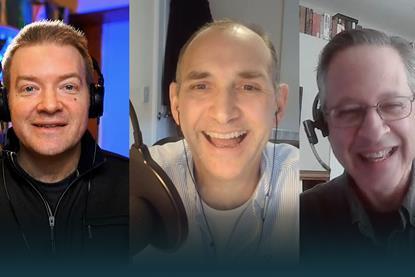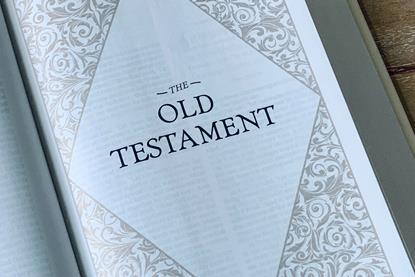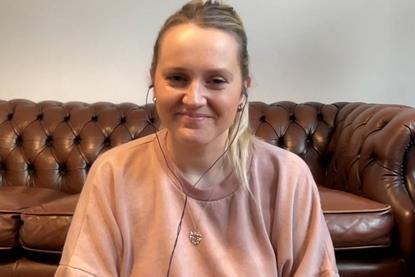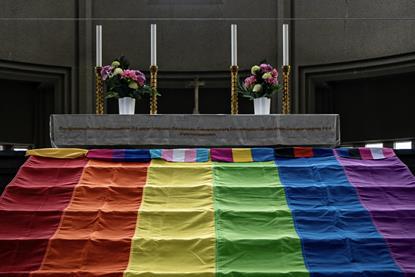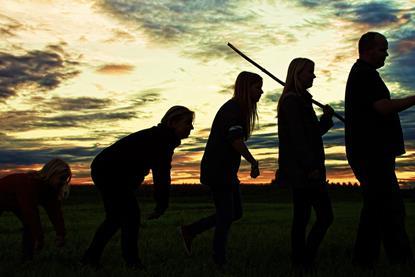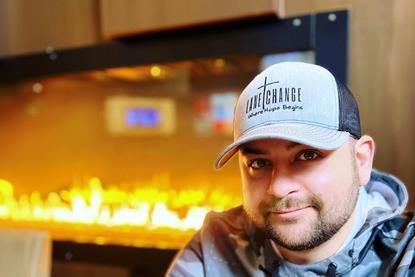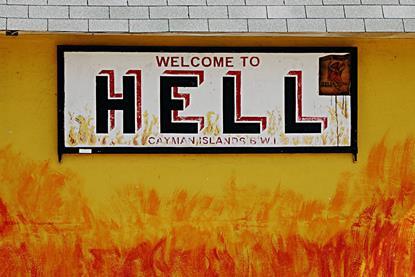Jesus
Divine Humility: The Astonishing Reality of God’s Arrival in a Manger
Erik Strandness delves into the profound humility of the Christmas story, exploring how the birth of Christ in a manger challenges our expectations of divinity and invites us to encounter God in an entirely new way
#235 The New Testament in its World with special guest and co-author Mike Bird (Classic)
Today’s episode features a special guest - renowned Australian Bible scholar, co-authored and friend of Tom’s, Mike Bird. Together, they delve into their groundbreaking collaborative work, “The New Testament in its World: An introduction to the history, literature, and theology of the first Christians” which both combines and unpacks years of Tom’s major study into this seminal volume.
The CS Lewis Podcast #182 Sarah Hawkyard: CS Lewis changed everything
Ruth Jackson spoke to singer-songwriter Sarah Hawkyard who describes Mere Christianity as a “game changer”, which “hooked” her onto Christianity. Lewis played an integral role in Sarah coming to faith, challenging, inspiring and providing her with profound knowledge.
What is truth, and what happens if society rejects that it even exists?
What is truth, and what happens if society rejects that it even exists? Two recent Premier Unbelievable debates highlight the difference between a Christian and a relativist worldview
The CS Lewis Podcast #178 Scott Tuohy: A Lewis quotation changed my life
When scaffolder Scott Tuohy heard a quotation from CS Lewis while attending an Alpha course, he was so profoundly moved by it, he got the quote tattooed on his bicep the next day. His life has never been the same since. Here, he shares his story with Ruth Jackson.
Does believing that all will be saved ignore the fundamental reality of sin?
Apologist Erik Strandness ponders on an important topic that can be ignored in the debate over ‘universalism’ – what we are to be saved from - the reality of sin and Jesus’s central role in its defeat
Life, Death, and Sacrifice: A Christian Explanation of Near-Death Experiences
Apologist Erik Strandness explores the profound effects of NDEs on those who have experienced them and asks: what depiction of God best fits with this amazing love?
Out of darkness: How dabbling in demonology led to discovering Jesus
Former atheist Chris Adam experienced a difficult, chaotic childhood and was drawn to witchcraft and demonology to gain control over his life. Researcher Jana Harmon shares how his life changed dramatically after reading the Bible
Pride month versus humility: What does Jesus say?
June marks LGBT Pride Month, but what does the Bible say about humility, pride and holiness? Erik Strandness explores
Unapologetic #109 Justyn Terry: Jürgen Moltmann on suffering, politics and hope
Does God suffer? How does a “crucified God” speak to our pain? Where can we find hope? How should we engage with politics?
Can we have virtue without god?
Erik Strandness looks at where virtue comes from, exploring an Unbelievable show on the topic with atheist philosopher Julian Baggini and Christian author Dominic Done
Unapologetic #106 Kathy Keller: Why does God allow suffering?
Kathy Keller is no stranger to suffering, so how is she able to attest to the goodness of God in the midst of great pain? How does she respond to unanswered prayer? Does she have any advice about coping with anxiety? Is it possible to hold on to hope during tragedy?
Christians in Science: How faith helps rather than hinders my chemistry
Apologist Joel Furches speaks to chemist Edgar Andrews about Christianity, science and the Bible
Is atheism rational? How a physicalist atheist discovered Christianity
Mason Jones was convinced there was no phenomena that could not be explained apart from what’s physically observable. Here, researcher Jana Harmon described how Mason grew unsatisfied with the limitations of his atheism and discovered the rationality of a Christian worldview
Unapologetic #101 Rachael Heffer: What does the UK think about faith?
Rachael Heffer, head of mission at the Evangelical Alliance, shares her thoughts around the Talking Jesus research. What do the UK public think about the Church, Christians and Jesus? Who are the “nones” and why has there been such a rise in this category of people? What questions are young people asking? Are people actually interested in God?
Unapologetic #100 Ruth Jackson: 100th Episode Special
Ruth Jackson shares some of her favourite moments over the last 99 episodes, including an opiate addict becoming a Christian apologist via a near death experience, an analytic philosopher on why she believes the gospel narratives are reliable, an NFL player on how he’d choose Jesus over winning the Super Bowl and a theologian exploring whether Jesus had a sex drive.
Me and my shadow: how should we respond to our inner darkness?
With dark stories dominating our news cycles, Erik Strandness explores what our response should be to the darkness inside us
Is rebirth possible?
Neonatal consultant Erik Strandness explores what it means for Christians to be born again
What did Holy Week mean to JRR Tolkien?
Dr Holly Ordway, author of Tolkien’s Faith shares how a memorial cross spoke powerfully to Tolkien of Jesus’ death and resurrection
The CS Lewis Podcast #147 Jason Lepojärvi: The undiscovered Lewis
Dr Jason Lepojärvi, CS Lewis associate professor of theology and literature at George Fox University and director of the CS Lewis Initiative, gives us a sneak peak into some undiscovered elements of Lewis. Did he have a theological blind spot? Why are people still so interested in him? Plus, discover more about the inaugural Undiscovered CS Lewis conference in Oregon.
Hope in despair: How a militant atheist encountered God
Dave Glander’s broken childhood was one of the many factors that led to his staunch atheism. However, his worldview was dramatically shaken in a moment of desperation. Jana Harmon shares his story
Who are the Jehovah’s Witnesses and how do they differ from Christianity?
Apologist Joel Furches explores the history of Jehovah’s Witnesses and their central beliefs. Are they a Christian cult or just another denomination?
Unapologetic #92 Michael Lloyd: Did Jesus have a sex drive?
What does the image of God say about our sexuality? What does that mean for single people? How did Jesus’ sexual safeness help to heal people’s broken sexuality and what did Jesus say about sex?
Unbelievable? The most googled questions with Bruce Miller: Does life have a purpose? Is Christianity true?
Bruce Miller, author of The 7 Big Questions: Searching for God, Truth, and Purpose, tackles two huge questions: is Christianity too narrow and is Jesus really God? He also explores whether Jesus really rose from the dead.
What do Kate Bush and Jesus have in common?
Author Drew Cordell looks at why Christianity is worth investigating
From Roses to Ashes: The harmonious dance of Valentine’s Day and Lent
Valentine’s Day and Ash Wednesday fall on the same day this year. Author Lauren Windle reflects on this unlikely compatibility and ponders what it means for us
Why do we observe Lent? NT Wright on lament and celebration
As we approach Lent, Rt Rev Prof NT Wright shares his thoughts on how Lent emerged, why it’s significant and what it means for us today
Why Christianity is the best foundation for a better future
Younger generations hunger for a better world. Christian speaker Sara Stevenson, in a recent Premier Unbelievable podcast, argues that this goal is best understood using the truth of the Christian worldview
Racial justice: How an immigrant Jesus brings hope
11th February marks Racial Justice Sunday in the UK. Clare Williams, founder of Real Questions, looks at why we must challenge both external injustices and the flaws within our own hearts, and how the cross of Jesus brings us hope
Was God the first scientist?
John Van Sloten, author of God Speaks Science, looks at why science is one of the Church’s greatest allies. Read his first and second instalments of this mini-series here – ‘Jesus speaks supernovae’ and ‘Does God still bring water from rocks?’
Does God still bring water from rocks?
In his second instalment (read part 1 ‘Jesus speaks supernovae’ here), John Van Sloten, author of God Speaks Science, shares how God uses both the Bible and creation to reach us
Unapologetic #90 Phil Knox: Should God be your best mate?
In this final episode with evangelist Phil Knox, we explore friendship with God. Can God be our friend? How do we prioritise and pursue the presence of God? Must we ensure the Lord Almighty doesn’t become the Lord Almatey?
From Bartimeus to Ed Sheeran: Mental health, stigma and the gospel
January can be a particularly difficult time for those facing mental health struggles. Rev Prebendary Dr Isabelle Hamley, co-author of Struggling With God, explores how Jesus’ response to Bartimeus can help inform our thinking in this area
Why Christianity could trend in 2024
As we embark on a new year, author Drew Cordell reflects on the relevance of God in Western society
The CS Lewis Podcast #135 David Bates: What did Christmas mean to Lewis?
David Bates from Pints With Jack shares some of CS Lewis’ thoughts about Christmas. What are some of his key works that elucidate this topic? Did the festive period lose its significance when Lewis became an atheist? Plus, we catch up on how the inaugural CS Lewis Reading Day went last month.
The CS Lewis Podcast #133 Alister McGrath: Was Lewis a prophet and does he speak to contemporary cultural issues?
Professor Alister McGrath and Ruth Jackson continue their discussion about whether CS Lewis is still relevant. Was he something of a prophet? What can we learn about the way Lewis engaged with modern media? How did he make complicated theological concepts relatable? In what ways has Lewis influenced our culture and is he able to speak to contemporary topical issues, such as transgenderism?
The inaugural CS Lewis Reading Day: Why should Tolkien geeks have all the fun?
CS Lewis podcaster, David Bates, shares why he helped initiate a campaign to commemorate Lewis with an annual Reading Day on November 29th
Sex, sexuality and the purity culture: What would Jesus deconstruct (WWJD)?
Preston Ulmer, author of Deconstruct Faith, Discover Jesus: How Questioning Your Religion Can Lead You to a Healthy and Holy God, shares his thoughts on how our stance on sex may have caused people to lose their faith
What is Wicca and how does it differ from Christianity?
Apologist Joel Furches explores the central beliefs of Wicca and looks at its historical relationship with Christianity
Unapologetic #78 Amy Orr-Ewing: Why are women central to the Christian story?
Dr Amy Orr-Ewing, author of Mary’s Voice, explores the context of Mary, mother of Jesus, and looks at why women play such a significant role in Christianity. Plus, what is the Magnificat, why is it so revolutionary? And how is it relevant today?
The CS Lewis Podcast #131 David Bates: CS Lewis Reading Day
David Bates and his team at Pints With Jack have helped establish a day to celebrate CS Lewis and his work. His fellow Inkling, JRR Tolkien, already has a special reading day, but “why should the Tolkien nerds have all the fun?”! Listen in to hear why David thinks Lewis is still relevant today and how you can get involved with the inaugural CS Lewis Reading Day on Lewis’ birthday - November 29th.
At the going down of the sun and in the morning, should we remember them?
As we approach Remembrance Day in the UK and Veterans Day in the US, Joel Furches explores whether we should be praying for our military
Cobbler turned missionary: How William Carey brought hope to the hopeless
Author Mark Roques explores the life of Baptist preacher William Carey
I don’t need God: How tragedy compelled an atheist to rethink his disbelief
Athiest Warren Prehmus had no need for God. However, when personal tragedy struck, he began to question his presuppositions and explore Christianity. Researcher Jana Harmon shares his story
Is there a future for evangelicalism in the West?
Sam Reimer, professor of sociology and author of Caught in the Current, explores the decline of Christianity in light of the three ways religious groups can grow
Unapologetic #74 Michael Lloyd: Should we all study theology?
Rev Dr Michael Lloyd, author of Cafe Theology, shares his story including why he got ordained, how he ended up in academia and why he changed his mind on the ordination of women. He also discusses how to assess the veracity of doctrines and why he believes everyone should study theology.
Is there a rebirth of belief in God?
Erik Strandness reviews Justin Brierley’s new book
Christians in science: Why an astronomer believes the Bible is reliable
Apologist Joel Furches interviewed astronomer Dr Hugh Ross about science and his belief in God
Is Western culture eroding Christianity?
Sam Reimer, professor of sociology and author of Caught in the Current, explores how authority, belief and behaviour have changed over the years and the impact this has had on faith
Unapologetic #73 Peter Byrom: Dawkins’ argument from complexity
In the final part of their discussion, Peter Byrom delves into Dawkins’ argument from complexity, suggesting it may be a circular assumption. They unpack Dawkins’ fascinating exchange with Francis Collins in 2022, where Dawkins admits he may have a presupposition towards materialism. Plus, what does the future hold?
Is AI conscious and does it matter?
Dr Eve Poole considers whether we have to learn to be responsible for the souls we are creating now we are creating artificial intelligence and robots in our own image
Discovering purpose: An engineer's evolution from atheism to a life filled with meaning
Apologist Jana Harmon shares the story of Neil Placer, who discovered the Christian faith via years of atheism
Bennu the asteroid: Why does the Universe exist and why should we care?
Nasa’s Osiris-Rex returned from a seven-year mission with asteroid Bennu’s dust, aiming to shed light on the Universe’s formation. Erik Strandness examines the project’s theological and philosophical impacts.
Unapologetic #72 Peter Byrom: Disillusioned with Dawkins
Peter Byrom continues to share his faith journey as told in the chapter he contributed to Coming to Faith Through Dawkins. He discloses how challenging Richard Dawkins on why he wouldn’t debate William Lane Craig led to him becoming something of a YouTube sensation! Peter also shares why he believes apologetics is important and what the final nail in his atheist coffin was.
Are humans better than animals?
Apologist Nathan Rittenhouse shares his thoughts on Psalm 8 and its ramifications
What can we learn from near-death experiences?
Journalist Heather Tomlinson continues her exploration on near-death experiences in light of a recent Big Conversation on this topic
Transformed: How a despised Indian child became an evangelist
Jehu Limma, founder of HopeGiving Foundation, shares his remarkable journey from “untouchable” to helping children out of poverty
Why secular sceptic Nir Eyal thinks we need Church
Theology student David MacPherson reflects on a recent episode of The Diary of a CEO, where Nir Eyal discussed the benefits of church and a worshipping community
Unapologetic #71 Peter Byrom: Discovering Dawkins
In the first episode of this three-part series, Peter Byrom shares his fascinating story as told in the chapter he contributed to Coming to Faith Through Dawkins. He outlines how he encountered the apologist William Lane Craig via the New Atheists and discusses his growing disillusionment with Dawkins’ “devastating” argument from complexity.
The CS Lewis Podcast #124 Perelandra: Scientism, spirituality and magic
Professor Alister McGrath explores the second book of CS Lewis’ space trilogy, Perelandra, looking at some of its key themes, characters and questions. Could the Fall have been prevented? What if it hadn’t happened? How did Lewis perceive magic? Where do we find meaning? Is there a limit to science?
Ask NT Wright #186 Has the resurrection been debunked? (Classic)
From 2020: It’s Eastertide so Tom is answering questions on the resurrection, including one listener who believes that the evidence of the women at the empty tomb has been debunked by modern scholarship.
Does deconstruction signal the death of faith?
Erik Strandness reflects on deconstruction and reconstruction following an Unbelievable show on this topic
The CS Lewis Podcast #123 Out of the Silent Planet: Death, suffering and The Fall
In the final episode on Out of the Silent Planet, Alister McGrath explores Lewis’ depiction of humanity, death, evolution and suffering. He also discusses the framework Lewis provides to help us reflect on these big questions.
Unbelievable? Coming to faith through Dawkins - Part 2: Is there a new New Atheism? Alister McGrath & Alex O’Connor
In the second part of their discussion based on the book Coming to Faith Through Dawkins, theologian Alister McGrath and YouTuber Alex O’Connor discuss where we may be heading in regards to religion and atheism.
Ask NT Wright Anything #185 Questions on Crucifixion and Atonement (Classic)
From the archives: Just in time for Easter we bring you a show (recorded before lockdown) in which Tom answers listener questions on the crucifixion, the nature of atonement and forgiveness.
Is the presence of God merely an illusion? A scientist investigates
Ken Miles, clinical academic and author of From Billiard Balls to Bishops: A Scientist’s Introduction to Christian Worship, explores whether we can feel the presence of God in an age of science
Will AI replace us?
Author Darren Richards reflects on artificial intelligence, looking at the value of human leaders
Unapologetic #69 Phil Knox: Does evangelism matter?
Evangelist Phil Knox, author of Story Bearer and The Best of Friends, shares some of his story with Ruth Jackson, speaking about the impact of his dad’s death at a young age. Plus, they discuss why evangelism matters and how we can share our story and be a “good news person in a bad news world”.
The late Queen (1926-2022): Reflections from a bishop a year after her death
Retired bishop Richard Harries shares his thoughts about Queen Elizabeth II, who died a year ago on 8th September 2022
What is Buddhism and how does it differ from Christianity?
Apologist Joel Furches explores the central beliefs of this popular Eastern religion, and compares it to Hinduism and Christianity
Is there more to life than mere matter?
Dr Erik Strandness explores the relationship between the soul, mind, brain, body and spirit following a recent Big Conversation about near death experiences
Do near death experiences contradict Christian belief and doctrine?
Journalist Heather Tomlinson explores near death experiences and theology in light of a recent Big Conversation on this topic
From radical atheist to Christian via rigorous intellectual study
Former atheist, Dr Stefani Ruper, was intellectually convinced of secular atheism, but found that it lacked substantive answers for her life. More than 13 years of scholarly pursuit of truth led her to choose belief in God. Jana Harmon shares her story
The CS Lewis Podcast #120 Out of the Silent Planet: Weston, Devine and JRR Tolkien
As we delve into the first book of the trilogy, Out of the Silent Planet, Professor Alister McGrath looks at some of its key themes. He explores the characters of Weston and Devine, looking at whether they represent particular ideologies and how Lewis exposes issues with their worldviews. Plus, why was JRR Tolkien such a fan of the book?
Unbelievable? Richard Dawkins & Francis Collins Debate (Replay) + Clash with Richard Swinburne + New Big Conversation Episodes Reveal!
We revisit a riveting dialogue from Season 4 of The Big Conversation, from 2022.
What is a near-death experience and what can it teach us?
Following a recent Big Conversation, journalist Heather Tomlinson explores near-death experiences
The CS Lewis Podcast #119 Has The Space Trilogy stood the test of time?
Alister McGrath concludes his introduction to Lewis’ Space Trilogy by exploring parallels with The Chronicles of Narnia. He offers tips for getting into these three books, speculates why they haven’t been turned into films and shares his favourite moment in the trilogy.
Jesus is the true and better Tim Keller
Rev Sam Allberry, a close friend of Tim and Kathy Keller, delivered a moving tribute at Tim Keller’s memorial service on 15th August. Here’s what he said
Remembering Tim Keller: Death has lost its sting
Entrepreneur Max Anderson shares his final reflections on the great Tim Keller who influenced his life in a deeply profound way
The CS Lewis Podcast #118 Evil, evolution and theological reflection in The Space Trilogy
Alister McGrath explores some of the theological themes within Lewis’ trilogy, such as incarnation, atonement and the problem of evil. How did Lewis view the relationship between science and religion? What did he think about evolution? How did he critique certain worldviews through his fiction?
Remembering Tim Keller: How our daily work has an eternal value
Entrepreneur Max Anderson reflects on his New York pastor and friend’s teaching on work
Remembering Tim Keller: The purpose of marriage
Entrepreneur Max Anderson reflects on his New York pastor and friend’s teaching on marriage
Remembering Tim Keller: The heart is an idol factory
Entrepreneur Max Anderson reflects on his New York pastor and friend’s teaching on idolatry
Remembering Tim Keller: Jesus’ teachings only matter if the resurrection is real
Entrepreneur Max Anderson reflects on his New York pastor and friend’s apologetic teaching
Remembering Tim Keller: Religious people may be just as lost as the irreligious (maybe more)
Entrepreneur Max Anderson reflects on his New York pastor and friend’s teaching on the Prodigal Son
Remembering Tim Keller
Entrepreneur Max Anderson reflects on the many things he’s learnt from his New York pastor and friend
Unapologetic #64 Ana Ávila: Has science disproved religion?
Ruth Jackson continues her conversation with Mexican writer Ana Ávila who studied clinical biochemistry. Why is there a perceived conflict between science and religion? Does science contradict the Bible? Can you prove there is a God?
Are we more than just our brains?
Following a recent Big Conversation, Dr Erik Strandness explores the relationship between the brain and mind, near death experiences, the existence of the soul and the perceived conflict between religion and science
Sex, drugs and rock ‘n’ roll: Why CS Lewis’ Space Trilogy is still relevant
The CS Lewis podcast recently launched a new series focussing on one of Lewis’ lesser known works of fiction, his Space Trilogy. Here, Ruth Jackson shares why she and Professor Alister McGrath think the books are worth a read, despite their length and difficulty
Christians in science: How a military meteorologist became a theologian
Charles Clough is a retired military meteorologist who became a Christian while at MIT. Apologist Joel Furches spoke to him about being a scientist and a theologian
Unapologetic #63 Ana Ávila: Faith, questions and apologetics in Latin America
Mexican writer Ana Ávila, who lives in Guatemala, shares her insights into religion in Latin America. How do we probe our beliefs? What does evangelism look like in a nominally Christian culture? How is apologetics received in some of these countries and what are the big questions being asked?
What Daleks can teach us about truth
Linguist and author of Dalek Christianity Tom Schwarz explores what factors influence our perception of truth. He also looks at how we can celebrate different perspectives
Women in apologetics: Overcoming sexism, societal expectation and vicious online attacks
Former non-theist Mary Jo Sharp found answers to many of her questions through Christian apologetics. She is now passionate about sharing this with others, despite the great personal cost at times. She shares some of her story with Joel Furches here
Unapologetic #62 Dr Jennifer Woodruff Tait: Does Christian history matter?
Dr Jennifer Woodruff Tait, managing editor of Christian History magazine, discloses how looking at the past can help us with the future. She shares some of the interesting steps in her career, from preaching to her stuffed animals at the age of 4, to professor, music director, librarian and priest (and brown belt in Karate!). Plus, she offers her thoughts around the Asbury revival.
What does it mean to be human?
Are science and religion in conflict? Is there more to life than mere matter? Where do we find meaning? Erik Strandness explores these big questions in light of a recent Big Conversation with atheist Philip Ball and Christian Nick Spencer
What is Hinduism and how does it differ from Christianity?
Apologist Joel Furches explores the evolution of religion, focussing on the most ancient religion still practised today
Unapologetic #61 Vince Vitale: Why does God allow suffering and how can I cope?
Philosopher Dr Vince Vitale presents some of his PhD research around evil, suffering and theodicy. He and Ruth Jackson share their own experiences of suffering miscarriages, demonstrating that this is not just a theoretical question of why there is pain, but a deeply practical one of how we are to deal with this agony.
The CS Lewis Podcast #114 An introduction to The Space Trilogy
Many people don’t even realise CS Lewis wrote science fiction, much less have perused these three colossal volumes. So, why read them? In the first episode of our brand new series on Lewis’ Space Trilogy, Professor Alister McGrath looks at when and why Out of the Silent Planet, Perelandra and That Hideous Strength were created and how they can impact our lives today.
Is it ever OK for Christians to be violent?
Apologist Clinton Wilcox explores whether the Bible mandates pacifism or if acts of violence can ever be justified
Food for thought: What has nutrition got to do with faith?
Erik Strandness takes a look at a number of biblical metaphors involving food and explores what they mean for our faith
Unapologetic #59 Vince Vitale: From scepticism to Christian apologist
Ruth Jackson speaks to Dr Vince Vitale, one of the new guest hosts of Premier Unbelievable?, about his journey from scepticism to Christianity while studying philosophy at Princeton University.
The CS Lewis Podcast #111 Is Lewis’ argument from reason convincing?
In the second part of this replay of an Unbelievable show, originally broadcast in October 2010, Justin Brierley speaks to Lewis scholar Dr Michael Ward and former Christian-turned atheist Dan Barker. Here, they continue to discuss CS Lewis’ apologetics, focussing particularly on his argument from reason in ‘Miracles’.
How a sceptical engineer discovered that science, far from disproving Christianity, opened a way to faith
Ben Clifton grew up in a non-Christian household and didn’t encounter church until his wife’s mental health struggles led her to attend. Here, Jana Harmon tells the remarkable story of Ben’s journey from sceptic to apologist
What is Islam and how does it differ from Christianity?
Apologist Joel Furches highlights the core beliefs of the fastest growing religion in the world and compares it to the two other Abrahamic faiths
The CS Lewis Podcast #110 An atheist and Christian reflect on CS Lewis’ apologetics
60 years after his death people continue to read, use and quote CS Lewis’ apologetics works. In this replay of an Unbelievable show, originally broadcast in October 2010, Justin Brierley speaks to Lewis scholar Dr Michael Ward and former Christian-turned atheist Dan Barker. Here, they discuss Lewis’ arguments, focussing particularly on his Natural Law argument for God in ‘Mere Christianity’.
Unbelievable? Bart Ehrman vs Peter J Williams, 2009: Misquoting Jesus: Can We Trust The Gospels? (plus new Big Conversation reveal)
We’re revisiting a pivotal debate from 2009: Bart Ehrman’s first appearance on Unbelievable?, debating Peter J Williams on whether we can trust the gospel accounts and, specifically, how New Testament scripture has been transmitted.
Unapologetic #56 Collin Hansen: Tim Keller (1950-2023) - A pastor to sceptics
In the third part of our discussion with Collin Hansen, author of ’Timothy Keller: His Spiritual and Intellectual Formation’, we focus on Keller’s ministry in New York and beyond. Hansen also shares what Keller would want to say to the global Church and speculates on his lasting legacy.
The CS Lewis Podcast #108 Tim Keller (1950-2023) on CS Lewis
In this special episode following the death of Tim Keller on Friday 19th May, Ruth Jackson speaks to Collin Hansen, author of ’Timothy Keller: His Spiritual and Intellectual Formation’. They talk about Keller’s love for CS Lewis and reveal some fascinating stories about Kathy Keller, Tim’s wife, who was one of the last people to correspond with Lewis before his death.
Riches to rags: How a millionaire lost nearly everything, but found God
Former atheist Stu Fuhlendorf felt no need for God, achieving high level of success and power in the business world. However, his achievements were tainted by emptiness and addiction, which helped him become open to his need for God. Jana Harmon shares his story
Unapologetic #55 Collin Hansen: Tim Keller (1950-2023) on women, family life and homosexuality
We continue our conversation with Collin Hansen, author of ’Timothy Keller: His Spiritual and Intellectual Formation’, who highlights some of the key women in Keller’s life, particularly his wife Kathy. Hansen explains why Tim Keller was a complementarian and speaks about Keller’s brother, Billy, who died from AIDS in the 1990s.
What can George Bush’s 1992 failed presidential campaign teach us about salvation?
Erik Strandness challenges us to rethink the way we share our faith for the sake of our young people
Unapologetic #54 Collin Hansen: Remembering Tim Keller (1950-2023)
Following the death of Tim Keller on Friday 19th May, Collin Hansen, author of ’Timothy Keller: His Spiritual and Intellectual Formation’ spoke to Ruth Jackson about Tim Keller’s early life and shared some of his favourite memories of the New York apologist.
Ask NT Wright Anything #170 Tom on his life and faith, and the meaning of the cross (Classic)
First broadcast in 2017, NT Wright talks to Justin Brierley about his early life and how his faith developed over the years, before turning to the question of what the atonement means, as laid out in his book The Day The Revolution Began. This interview was first broadcast on The Profile podcast https://www.premierchristianradio.com/theprofile
Unapologetic #53 John Swinton: Disability, learning difficulties and dementia
John Swinton, professor in practical theology and pastoral care at Aberdeen University and a former psychiatric nurse, challenges the way we approach disability, ensuring we create spaces where everyone belongs and has their spiritual needs met. We also discuss difficult questions around dementia, such as what it means to know God when you have limited conceptual intellectual capacity.
Should we be sceptical about the paranormal?
Erik Strandness explores how we should respond to supernatural phenomena in response to an Unbelievable? show about paranormal activity, such as near-death experiences, angels and ghosts
The CS Lewis Podcast #105 Dr David Clare: The man from God knows where - Lewis’ Irishness
Drama and theatre studies lecturer Dr David Clare explores four plays about Lewis that downplay his Ulster background. This talk was originally given at a CS Lewis symposium called Now We Have Faces, which was hosted by The CS Lewis Group at Ulster University in coordination with English at Ulster. The title of David’s presentation was ‘“The man from God knows where”: Four plays about CS Lewis in which his Belfast background is ignored or downplayed’.
Free at last: How an atheist addict was healed from addiction and suicidal thoughts
From a young age, Mark Goodnight experienced great suffering, including sexual abuse, alcoholism and depression. These events caused him to doubt God. As his life spiralled out of control, Mark reached out to the God he didn’t believe in and began to experience healing and restoration
Women in apologetics: How a biology major who struggled to share her faith became an apologist
Jane Pantig, who works for Ratio Christi, loves her unique platform as a Filipino-American woman. Apologist Joel Furches shares some of her story here
Ask NT Wright Anything #169 Broken Signposts and questions on forgiveness and salvation (Classic)
From 2020: Tom talks about his book “Broken Signposts” and answers listener questions around how God forgives, conversion and how you can be sure you’re saved.
Unapologetic #52 John Swinton: Supporting people with mental health challenges
May marks Mental Health Awareness Week, so we spoke to John Swinton, professor in practical theology and pastoral care at Aberdeen University, who spent 16 years as a psychiatric nurse. He shares his thoughts about how to care for those experiencing mental health difficulties, particularly young people.
Why King Charles III’s coronation matters
Church of England vicar Rev Jeremy Crossley reflects on why we crown and what the upcoming coronation reveals about King Charles III’s vocation and calling
Why I’m an atheist anti-monarchist
Alex O’Connor, also known as Cosmic Skeptic, shares his thoughts about the forthcoming coronation of King Charles III
Unapologetic #51 Lydia McGrew: Who is the true Jesus?
In the final part of her discussion with Ruth Jackson, Dr Lydia McGrew, an analytic philosopher and author of Testimonies to the Truth: Why you can Trust the Gospels, unpacks some of the more disconcerting elements of Jesus’ character and looks at how this impacts the veracity of the Gospel accounts. She also addresses how the loneliness and suffering of Jesus can speak to a hurting world.
Death to deconstruction: Can exvangelicals ever reconstruct their faith?
Erik Strandness reflects on an Unbelievable? discussion between punk singer-turned-pastor Josh Porter and former-Christian Jon Steingard, exploring why numerous young American evangelicals lose their faith and whether they’re ever able to get it back
Doesn’t the Bible say we’d be better off without a king?
As we approach the King’s coronation, journalist Heather Tomlinson explores the biblical idea of kingship and what that means for us
Why I’m excited about the King’s coronation
Rt Revd Paul Butler, one of the bishop assistants to the King, shares his thoughts on this historical event
Unapologetic #50 Lydia McGrew: Can we trust the Gospels?
Dr Lydia McGrew, an analytic philosopher and author of Testimonies to the Truth: Why you can Trust the Gospels, explores how reliability is assessed in regards to ancient documents. She tackles some of the alleged contradictions in the Gospels and looks at why certain elements, such as accurate geography, cultural knowledge and names are important.
How should Christians respond to the Church’s dark history: Crusades and the Inquisition
Apologist Joel Furches corrects what he believes are a number of misconceptions about some of these historical events and explores what Christians should do about them
The CS Lewis Podcast #102 Alister McGrath: The CS Lewis phenomenon
In the final episode of our series focussing on McGrath’s book, CS Lewis: A Life, we look at why someone who expected to be forgotten within five years of his death has had such a lasting impact. Why is CS Lewis still so popular and how long will his appeal last? Plus, this is your last chance to register for the opportunity to win a copy of McGrath’s seminal biography of Lewis.
Indoctrination: The potential dangers of Hollywood films
Author Mark Roques warns us to be on our guard when watching television and movies
Unbelievable? Is God Dead? - Dr. John Lennox and Dave Rubin’s Big Conversation
This week we play Justin Brierley’s personal favourite episode: the discussion he hosted live in California, between Christian apologist John Lennox and US talk show host Dave Rubin, from 2019.
Ask NT Wright Anything #166 Justin Brierley asks Tom Wright his own personal questions
Justin Brierley is moving on from hosting the Ask NT Wright Anything show. Before the baton gets passed on to fresh hands, he sits down with Tom to ask him the questions he would like to hear answered.
Unapologetic #49 Lydia McGrew: Is an evidential approach to Christianity feasible?
Dr Lydia McGrew, an analytic philosopher and author, became a Christian at the age of 4. She shares some of her story with Ruth Jackson, including her experience of being adopted, her prevailing wrestle with the problem of evil and why she’s passionate about an evidential approach to Christianity.
What is Mormonism, and how does it differ from Christianity?
Writer Steve Schramm explores Mormonism and questions how Christians should respond to it
Dear Religion: What are you doing about teen suicide?
Neonatal physician Erik Strandness asks some challenging questions in light of many young people’s desperate struggles and explores what hope there is
The CS Lewis Podcast #101 Alister McGrath: Suffering, death and Lewis’ final years
In the 14th episode of our series focussing on McGrath’s book, CS Lewis: A Life, we look at Lewis’ deep anguish following the death of his wife, Joy Davidman, and explore his approach to suffering in A Grief Observed.
Unbelievable? Celebrating 17 years - Justin Brierley, Ruth Jackson, and Vince Vitale
The Unbelievable? show has been broadcasting for over 17 years. Justin Brierley and Ruth Jackson take a retrospective tour through highlights from the show from day one to some of the most significant debates that have been hosted, before being joined by Dr. Vince Vitale for a special announcement by Justin.
The search beyond science: How an inquisitive atheist found God through astrophysics
Analytical scientist Dr Hugh Ross had been searching for answers about the origin of the Universe since he was a child. He found them in the place he least expected – the Bible. Jana Harmon shares his story here
Ask NT Wright Anything #165 A pastor losing his faith writes in, plus more pastoral questions
In a special pastoral Q&A edition Tom responds to various questions on difficult family situations, unforgiveness and a church pastor who doesn’t know if he believes any more. Plus a musical treat from Tom. An archive show first broadcast in 2019.
Unapologetic #48 Jeremiah Johnston: Are there credible reasons to believe in God?
Dr Jeremiah Johnston, president of the Christian Thinkers Society and father to five children (including triplets!), shares his journey into apologetics, looking at the importance of engaging both the head and heart. As well as speaking about how to live distinctively, ask good questions and allow room for doubt, Jeremiah unpacks some of the big issues impacting young people today.
The CS Lewis Podcast #100 Alister McGrath: 100th special celebrating CS Lewis’ legacy and how he can help renew the Church
In this special episode, we take a break from our series on Professor Alister McGrath’s seminal biography, CS Lewis: A Life, to celebrate reaching our 100th episode. Alister shares some of his thoughts around what modern readers can learn from Lewis and how he can help with the renewal of the Church.
Unbelievable? Bart Ehrman & Justin Bass • Did Jesus of Nazareth rise from the dead?
The Big Conversation - Episode 1 | Season 5
Ask NT Wright Anything #164 Easter questions on the resurrection of Jesus
As Easter approaches Tom answers a variety of listener questions on the Biblical resurrection accounts, the nature of the resurrection body, why Jesus didn’t stay with us, and also shares his thoughts on popular psychology professor Jordan B Peterson. First broadcast in 2019.
If Jesus really rose from the dead, why does it matter today?
Professor John Swinton, a former psychiatric nurse-turned practical theologian at Aberdeen University, reflects on the significance of the resurrection and its impact
What’s so good about Good Friday? And why is Holy Saturday significant?
Professor John Swinton, a former psychiatric nurse-turned practical theologian at Aberdeen University, reflects on the significance of Good Friday and Holy Saturday
If Jesus really rose from the dead, how does the resurrection make sense of our suffering?
Dr Jeremiah Johnston, author of ’Body of Proof: The 7 Best Reasons to Believe in the Resurrection of Jesus-and Why It Matters Today’ shares his thoughts on this painful topic
Did Jesus actually rise from the dead?
Apologists Nick Peters and Joel Furches explore the plausibility of Christianity’s central claim
Is there evidence for an afterlife?
Apologist Joel Furches looks at the soul, near death experiences and the resurrection of Jesus, examining their veracity and relevance
Was Jesus really crucified?
Apologists Nick Spencer and Joel Furches examine the evidence for the event at the heart of Christianity
Why did Jesus have to die for me?
Dr Andy Bannister, director of the Solas Centre for Public Christianity, explores why he believes Jesus’ death on the cross was necessary
What are Palm Sunday, Holy Wednesday and Maundy Thursday and why are they important?
Professor John Swinton, a former psychiatric nurse-turned practical theologian at Aberdeen University, unpacks some of its key moments and their relevance
Ask NT Wright Anything #163 Theology of worship, church and unity
Do you have to go to church to be a Christian? What should our theology of worship be? How do we know we are in the ‘correct’ denomination? Tom Wright answers these and more questions from listeners about Christian unity. An archive show first broadcast in 2019.
What is Holy Week and why does it matter?
Professor John Swinton, a former psychiatric nurse-turned practical theologian at Aberdeen University, reflects on the events leading up to the death of Jesus and ponders their significance for our lives today
Unapologetic #46 John Swinton: darkness, death and extreme suffering - how Holy Week brings hope
In part two of his discussion with Ruth Jackson, Professor John Swinton shares what Holy Week means to him and explores what impact the suffering, death and resurrection of Jesus has on a world in need of hope.
Matters of Life & Death: Friendship 2: Walks in the Garden of Eden, David and Jonathan, covenantal clarity, and red flags
In this episode we take a lightning-quick tour through the Bible to consider what we can learn about friendship there – with God, between God’s people, and fundamentally lived out in the life of Jesus.
What happens when you die?
Apologist Joel Furches explores one of life’s biggest questions
What actually happened on the cross? Exploring atonement theories
Writer Steve Schramm unpacks various atonement theories, looking at their historical and biblical origins
The despair of meaninglessness – an atheist’s worldview is radically transformed
Former atheist Jim Tickner shares his story of discovering God in the midst of an existential crisis
Unbelievable? A skeptical churchgoer asks ‘Is Christianity too exclusive?’ Grace Hill & Eric Huffman
Show listener Grace Hill grew up in church but has always had lots of skeptical questions, especially around whether Christianity is too exclusive when it comes to honest seekers in other faiths. She recently found a church home where she could ask her questions - The Story Church in Houston, TX founded by Pastor Eric Huffman, host of the Maybe God podcast.
Does God speak today?
Heather Tomlinson shares a short explainer about charismatic gifts of the Spirit and cessationism, following a recent Unbelievable? debate
Unapologetic #45 John Swinton: a psychiatric nurse-turned practical theologian on suffering, faith and spiritual care
Ruth Jackson speaks to John Swinton, professor in practical theology and pastoral care at Aberdeen University. Having spent 16 years as a psychiatric nurse, John speaks about the importance of spiritual care in medicine. He also shares his thoughts on the problem of suffering.
Can the Gospels be trusted? The presence of casual coincidence
Gospel, Bible, reliability, manuscript, eye witness, testimony, coincidences, story, made up,Philosopher and author of Testimonies to the Truth: Why You Can Trust the Gospels, Lydia McGrew, looks at some key elements that point to the genuineness of eye witness testimony within the Gospel narratives
The CS Lewis Podcast #97 Alister McGrath: The creation of Narnia
In the eleventh episode of our series focussing on McGrath’s book, CS Lewis: A Life, we hear the inspiration behind the Narnia Chronicles and look at the important role imagination played in Lewis’ work. Plus, don’t forget to register for the opportunity to win a copy of McGrath’s seminal biography of Lewis.
What does God have to do with teaching French?
Author Mark Roques challenges the assumption that some things are in the ‘secular box’, while others are in the ‘religious box’
Does place matter? Lessons from Covid-19
Tim James explores how the Covid-19 pandemic contributed to our understanding of the divine importance of physical place in our modern world
Finding God through science – an atheist discovers chemical evolution can’t adequately explain the origin of life
Jana Harmon shares the story of Dr Fazale Rana who discovered God through his pursuit of science. His paradigm shift began when he began to find scientific explanations for the origin of life inadequate and started to look elsewhere
Unapologetic #44 Bruce Miller: Is the Bible reliable?
In this final episode, Bruce Miller, author of The 7 Big Questions: Searching for God, Truth, and Purpose, explores objections towards the Bible, including whether it is sexist, racist and out of date. Bruce also asks whether we can know and experience God personally, looking at why he doesn’t make himself more obvious.
Why I’m not shy about the gospel
Theologian Dr Andrew Ollerton explores what the gospel is and why he believes it needs to be shared
Are we all priests?
Erik Strandness explores what a priesthood of all believers means and what that looks like in practice.
Should we trust our brain or our emotions?
Erik Strandness explores how we can reconcile reason with joyfully dancing in our underwear
Ask NT Wright Anything #159 What difference does prayer make? Tom shares his prayer habits
Tom answers listener questions on prayer including: ‘Is prayer just telling God what to do?’ and ‘What difference does prayer make if God has already decided what to do?’. Kelly is nervous about praying out loud before a meal in public, and Jennifer is questioning the legitimacy of public displays of prayer in the USA. Tom responds to these questions and shares his own habits of prayer, including keeping a prayer diary.
Remembering theoretical physicist Professor Thomas McLeish (1962-2023)
Evangelist Greg Downes shares his personal reflections on his friend, the scientist and apologist Professor Thomas Charles Buckland McLeish, who died on 27th February
PREVIEW: The Big Conversation Season 5!
Subscribe for early access to this episode at thebigconversation.show
The CS Lewis Podcast #94 Alister McGrath: The wartime apologist
In the eighth episode of our series focussing on McGrath’s book, CS Lewis: A Life, Professor Alister McGrath shares some of Lewis’ thoughts on suffering. We also hear how and why Lewis was broadcast on BBC Radio during the Second World War and the impact this had. Plus, it’s not too late to register for the opportunity to win a copy of McGrath’s seminal biography of Lewis.
Is Asbury Theological Seminary really experiencing revival? President Timothy Tennent shares his thoughts
The leader of Asbury Theological Seminary reflects on what is happening at their campus in Kentucky
Protestant, Catholic and Orthodox: What’s the difference and does it matter?
Protestant Christian and apologist Nick Peters explores some key distinctions within different branches of Christianity
Unapologetic #41 Bruce Miller: Does life have a purpose?
In the first of four episodes on how to approach some of life’s most difficult questions, Ruth Jackson speaks to Bruce Miller, author of The 7 Big Questions: Searching for God, Truth, and Purpose, about belief, doubt and purpose.
Why would God allow the Turkey-Syria earthquake?
In light of the tragic Kahramanmaras earthquake, apologist Dr Sharon Dirckx shares her thoughts on how we reconcile the idea of a good and powerful God with the presence of natural disasters
The CS Lewis Podcast #93 Alister McGrath: CS Lewis’ literary scholarship
In the seventh episode of our series focussing on McGrath’s book CS Lewis: A Life, we explore why Lewis never used a typewriter, who the Inklings were and how they impacted his work, and what role women, such as Dorothy L Sayers, played in Lewis’ life. Plus, don’t forget to register to win a copy of McGrath’s seminal biography of Lewis.
Unbelievable? Sexuality, Gender & Identity: 2 views on LGBT and the church - Andrew Bunt & Charlie Bell
Andrew Bunt, Emerging Generations director at Living Out and author of ‘Finding Your Best Identity’, is a same-sex attracted Christian who has chosen celibacy and believes marriage is male-female. Charlie Bell, a gay Anglican vicar who also works as a psychiatrist, is the author of ‘Queer Holiness’ and wants to see gay marriage accepted in the church.
Can the Gospels be trusted? The texture of testimony
Philosopher and author of Testimonies to the Truth: Why You Can Trust the Gospels, Lydia McGrew, explores some of the characteristics of testimony within the Gospel narratives
Death has lost its sting – how becoming a Christian eradicated a humanist’s overwhelming fear of dying
As an ardent atheist, Kim Endraske disliked Christians, but wrestled daily with existential dread. Jana Harmon shares Kim’s story of discovering the God who dramatically changed her life
How do you mend a broken heart? The cure we all need this Valentine’s Day
As we head into a day devoted to celebrating relationships, Erik Strandness looks at how God restores the relationships damaged through our infidelity
Unapologetic #40 Tyler Scott: What Jesus means to a NFL player
Following Sunday’s Super Bowl, Ruth Jackson spoke to NFL wide receiver, Tyler Scott, about faith, football and the power of prayer.
The CS Lewis Podcast #92 Alister McGrath: The making of a Mere Christian
In the sixth episode of our series focussing on McGrath’s book CS Lewis: A Life, we explore Lewis’ faith journey, looking at how and why he became a Christian. We also hear about the significant impact of JRR Tolkien. Plus, don’t forget to register to win a copy of McGrath’s seminal biography of Lewis.
Racial justice: Why and how should we fight for it?
As we approach Racial Justice Sunday, apologist Adam Coleman of Tru-ID looks at why all humans have intrinsic worth. He shares examples of abolitionists who took matters of justice into their own hands as well as those who opted for non-violence, trusting God to act on their behalf
How an NFL footballer found faith through a naked teammate
As we approach this year’s Super Bowl, former NFL footballer-turned pastor, Derwin L Gray, shares his remarkable story of how he came to faith
Unapologetic #39 Lauren Windle: Being single and dating in a marriage obsessed Church
As we approach Valentine’s Day, Ruth Jackson carries on her conversation with author Lauren Windle, who shares her thoughts on singleness, dating and why the Church seems so obsessed with marriage.
Help! My teenager doesn’t believe in God
Pastor Marc Lambert looks at how parents can lovingly walk alongside their children as they doubt, question and rebel against Christianity
The CS Lewis Podcast #91 Alister McGrath: CS Lewis’ early years at Magdalen college
In the fifth episode of our series focussing on McGrath’s book CS Lewis: A Life, we look at some key moments in Lewis’ Oxford career, such as the death of his father. Plus, don’t forget to register to win a copy of McGrath’s seminal biography of Lewis.
Working for peace in our politically divided world is essential. But the Church needs to get its own house in order, too
Join journalist Heather Tomlinson as she navigates the topic of tribalism within the Church, a topic brought into focus during past discussions on sexuality within the Church of England.
Unbelievable? Uninvented: Are the stories of Jesus too unusual to have been made up? Mike D’Virgilio vs Matthew Taylor
‘You just can’t make this stuff up!’ That, in a nutshell is the contention of Mike D’Virgilio’s book ‘Uninvented: Why the Bible could not be made up and the evidence that proves it’. He says that the life of Jesus doesn’t read like made up stories, myths and legends.
How should Christians respond to transhumanism?
Apologists Clinton Wilcox and Joel Furches explore some of the core principles of transhumanism and their ramifications
Ask NT Wright Anything #155 Making sense of Old Testament violence
Tom responds to listener Qs on Andy Stanley ‘unhitching’ Christianity from the Old Testament, the historicity of the Exodus, and the way that Greg Boyd interprets violent portraits of God in ‘The Crucifixion Of The Warrior God’. First broadcast in 2019.
Do you want to be healed?
Following a recent episode of Unbelievable? on miracle healing, Erik Strandness explores what we can learn about healing from the biblical account of the pool at Bethesda
Unapologetic #38 Lauren Windle: Finding God in the midst of addiction
Journalist Lauren Windle tells her story of getting sober from alcohol and cocaine, and shares how she encountered the God who changed her life.
When the Church of England blesses gay marriage it signs its own death certificate
Social critic Bethel McGrew shares her thoughts on recent proposals by the House of Bishops to allow the blessing of same-sex marriages
Should Christians favour creation or evolution?: 4 different perspectives
Writer Steve Schramm explores Young Earth Creationism, Old Earth Creationism, Intelligent Design and Theistic Evolution
Fighting against God – a staunch atheist encounters God after a suicide attempt
Roger Sherrer vehemently believed religion was poison. Jana Harmon shares his story of transformation here
Ask NT Wright Anything #154 Tom answers Qs on universalism, hell and salvation
In an extended edition of the show originally broadcast on the Unbelievable? podcast, Justin asks a variety of listener questions on dispensationalism, John’s gospel, inerrancy, salvation, hell, universalism and Tom’s favourite books, music and much more… First broadcast in 2016.







